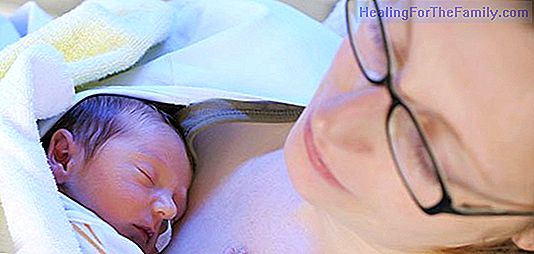What are the lochia after childbirth and how to take care of them
The puerperium or postpartum period is the period between the moment in which your baby is born and the placenta is expelled, and the physical recovery of the mother. It is popularly attributed a month and a half or two months duration, but it will depend on the type of delivery, on its own nature o
The puerperium or postpartum period is the period between the moment in which your baby is born and the placenta is expelled, and the physical recovery of the mother. It is popularly attributed a month and a half or two monthsduration, but it will depend on the type of delivery, on its own nature or on the child's upbringing, among other aspects, in order to determine when the child's body the woman regains normalcy.
Among the physical changes that occur are the lochia, a type of bleeding that accompanies the woman during the first days of postpartum. But what exactly are the lochia?
What are the lochia and why they occur

The lochia is the blood loss that women have after their birth, be it by cesarean or vaginal delivery. This bleeding is made up of blood that comes from what was the placental bed, remains of decidua, leukocytes among others. The lochia are evolving as the days go by since the birth of the baby. The first three days will be of a quantity similar to a rule, bright red, later between 3 and 6 days they will be more pink and from the week, they will be more yellowish or brown.
Of course there are factors that influence the characteristics of the lochia. Women who breastfeed tend to have less bleeding, because the stimulation of the nipple on the part of the baby causes oxytocin to be released and increasing uterine contractions, which favors its reduction.
Precautions that women should have with lochia
Lochia should never smell infection. You will see that in your postpartum check-ups it is one of the things that your midwife will ask you and review. In one of the symptoms of a possible endometritis. If your lochia has a foul odor, go to the hospital.
During the period that you are with these losses, you should not have intercourse. The uterus is regenerating and doing so can increase the risk of infection.
An increase in bleeding or an excessive prolongation of it, should make you consult your midwife. Women of average have lochia for 3 or 4 weeks.












